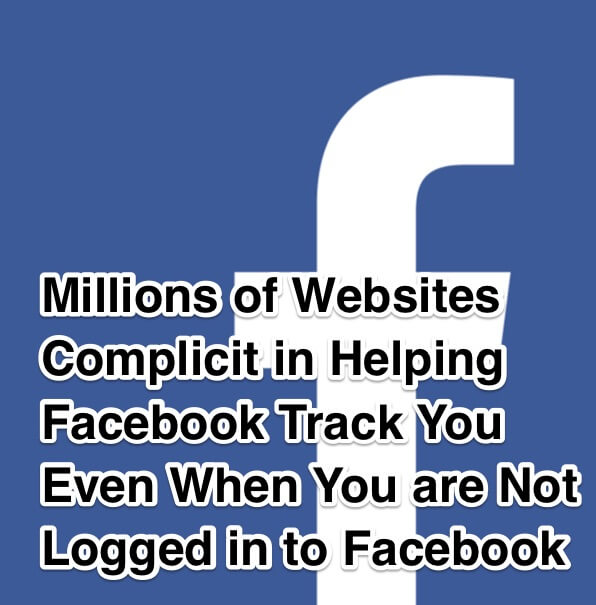
Today we are going to explain to you a few of the ways that Facebook is able to track you even when you are not logged in to Facebook, and what you can do about it. The fact is that Facebook has done a very good job of getting into many, if not all, of the places that you go on the web.
Facebook was sued by multiple people, which lawsuits were then consolidated into a class action lawsuit, in 2012, over the tracking of Facebook users around the web, and even when they were not logged in to Facebook. Still, the tracking continues to this day. There are a couple of the ways that Facebook still tracks you.
Facebook Interest-based Advertising
We first wrote about Facebook’s creepy way of showing you ads for things that you have been researching outside of Facebook back in 2014. Guess what, they are still doing it, and while they claim to explain how that works on this page, it really doesn’t explain the ‘how’ at all. On that page, Facebook says:
How does this work?
Let’s say that you’re thinking about buying a new TV, and you start researching TVs on the web and in mobile apps. Based on this activity, we may show you ads for deals on a TV to help you get the best price or other brands to consider. And because we think you’re interested in electronics, we may show you ads for other electronics in the future, like speakers or a game console to go with your new TV.
The Internet Patrol is completely free, and reader-supported. Your tips via CashApp, Venmo, or Paypal are appreciated! Receipts will come from ISIPP.
However, on that same page Facebook explains that “We also learn about your interests from some of the websites and apps you use.” going on to say that “We call this online interest-based advertising, and many companies do this.” < -- Note the "everybody else is doing it" excuse, which most outgrow by age 14. So how exactly is it that Facebook is able to track you on those websites? Here are a couple of ways:
The Facebook Like Button
Just last month, in July of 2019, the Court of Justice of the European Union determined that simply displaying the Facebook ‘Like’ button on a website sent so much data about a visitor back to Facebook even if the user was not logged in to Facebook at the time, that it caused the website displaying the Facebook Like button to be considered a data controller under the EU’s General Data Protection Regulation (GDPR).
Said the Court, in its decision, “The consequence of embedding that button appears to be that when a visitor consults the website of FashionID, that visitor’s personal data are transmitted to Facebook Ireland. It seems that that transmission occurs without that visitor being aware of it and regardless of whether or not he or she is a member of the social network Facebook or has clicked on the ‘Like’ button.”
Now, while this court decision was specific to Facebook’s Ireland center, there is no reason – none at all – to think it isn’t happening elsewhere, particularly in the United States, which has the laxest of privacy laws.
The Facebook Comments Plugin
People who run websites can install a Facebook comments plugin, either through their content management system (CMS) such as WordPress, or using code from Facebook.
If you happen to be on a website that uses a Facebook comments plugin as their comment management system, and you leave a comment, your comment, along with who-knows-what-all information about you (at a minimum that you were on that site, and what article you read) is sent back to Facebook. But wait, there’s more.
The information about anybody who leaves a reply to your comment – on that external website – is also sent back to Facebook, regardless of how long ago the comment was made.
Notification on Facebook about Someone Replying to a Comment on a 3rd-Party Website
Reply on Third Party Website Which Triggered Facebook Notification
What to Do About Facebook Stalking Tracking
First, it’s important to understand that you can never completely get away from Facebook tracking so long as you are on the Internet. That is because, as mentioned above, Facebook can track certain of your activities even if you don’t have a Facebook account at all, so long as you visit a site which has given Facebook access to their visitor data, such as through the displaying of the Facebook Like button.
However, you can minimize it.
If you do have a Facebook account, the first step is to go to your settings, and turn off tracking as much as possible.
Even though you might think that you want to go to the Privacy section, you actually want to go to the Apps and Websites section.
You’d be surprised how many websites you visit and apps you use that have Facebook tracking set up. Here are some that we removed.
Now go down to the next area on the same page and find this:
Make sure that you have this turned off.
“If you turn off this setting:
You won’t be able to log into apps or websites using Facebook
Apps and websites you’ve logged into with Facebook may delete your accounts and activity
You won’t be able to play some games on Facebook, and your gaming activity may be deleted
Your posts, photos and videos on Facebook that apps and websites have published may be deleted
You won’t be able to interact with or share content from other apps and websites on Facebook using social plugins such as the Share and Like buttons”
Yeah, that’s kind of the point.
Once you have done that, the name of the game is being observant and vigilant. If you really want to minimize Stalkbook Facebook tracking what you do across the Internet, then whenever you see an indicator that a website has installed something which gives Facebook access to your movements, such as the Facebook Like button, or the Facebook comments plugin, or really anything to do with Facebook, leave. Although you first may want to let the website owners know why you are not giving them your eyeballs.
Last, but not least, use a private browser window when you are online. We say “not least” because it’s a good thing to do anyways, and thwarts all sorts of tracking, not just Facebook. We recently tried the Brave browser which is by default ‘private’, and also alerts you to various trackers when you hit a website, however we didn’t love it, and frankly, as it’s built on Google Chrome, we don’t really trust Google even if the good folks at Brave have the purest of intentions. However, nearly all, if not all, browsers now offer a private window option when you click on the File menu.
How do you feel about all of this? Let us know in a (non-Facebook pluginned ;~) ) comment.
The Internet Patrol is completely free, and reader-supported. Your tips via CashApp, Venmo, or Paypal are appreciated! Receipts will come from ISIPP.



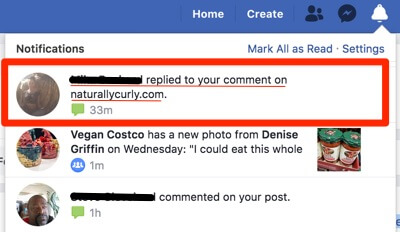
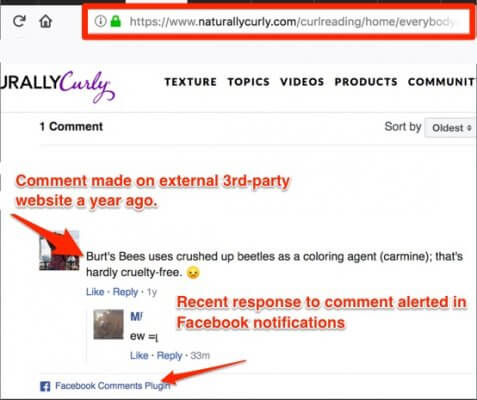
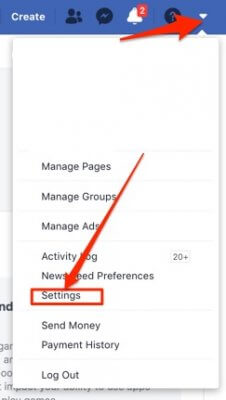
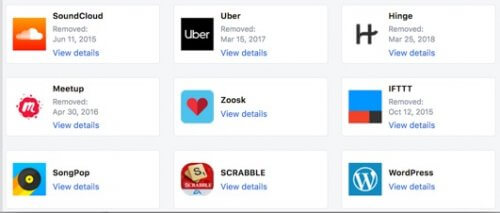
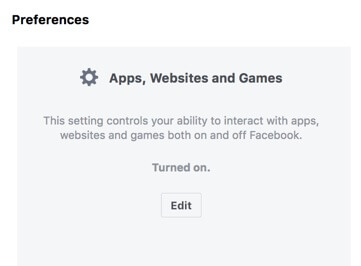
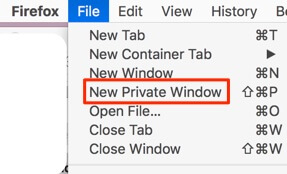







Hmm and what if we click your ‘Follow us on FB’ button?
Irony?
Actually, if you hover over those buttons, you will see that they are merely links to the pages; that said, we have now changed the wording to say “Find us”, as we see how this could have been confusing.